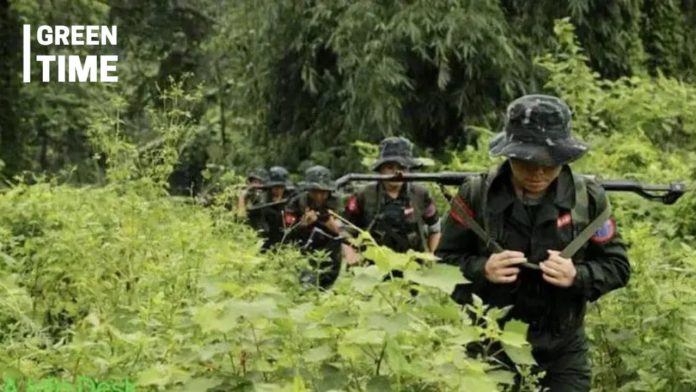The recent escalation in violence by Kuki militants in Manipur has rattled the Indian government, while certain media outlets have called for a more aggressive, militaristic response. However, such an approach carries significant risks, as the deep-rooted ethnic conflict in the region is unlikely to be resolved by force alone. Chief Minister N. Biren Singh has firmly opposed the Kuki community’s demand for autonomous administration, further complicating efforts to find a peaceful resolution.
A prominent Indian newspaper recently highlighted the need for positive gestures and dialogue, pointing out that Prime Minister Narendra Modi’s call for peace through dialogue in the Russia-Ukraine conflict is just as relevant in Manipur. The situation is mirrored in neighboring Myanmar, where the ethnic Arakan Army (AA) has gained control of key territories in southern Rakhine State, following intense fighting with government forces.
The Arakan Army’s control over territories on the Bangladesh border, including key towns like Buthidaung and Kyauk Phyu, poses a significant threat to the region’s security. The strategic importance of Arakan, with its oil and gas pipelines connecting to China and its position as a vital node in China’s Belt and Road Initiative, makes peace and stability in the region critical. India’s Kaladan project, which aims to connect Kolkata with Mizoram via Myanmar, also hinges on the region’s stability.
The Arakan Army is emerging as a major player in the security dynamics of the Bay of Bengal, with the potential to influence the future of infrastructure projects and the ongoing Rohingya crisis. While ethnic armed organizations in Myanmar have so far refrained from declaring independence, the complex, multi-ethnic nature of the country’s regions ensures that conflicts over territory and autonomy will continue to be a source of tension.
China’s response to the situation in Myanmar has been to engage with multiple factions, maintaining relationships with both the government and various armed groups, including the Arakan Army. This pragmatic approach reflects China’s significant investments in Myanmar and its concerns over regional stability. However, India’s engagement has been more limited, focusing largely on the military leadership in Naypyidaw.
The growing unrest in Manipur and Rakhine serves as a reminder that dialogue, rather than force, is crucial to resolving such deeply rooted ethnic conflicts. Without concerted efforts towards peace, these regions risk descending into further violence and instability, with far-reaching consequences for the entire South Asian region.

